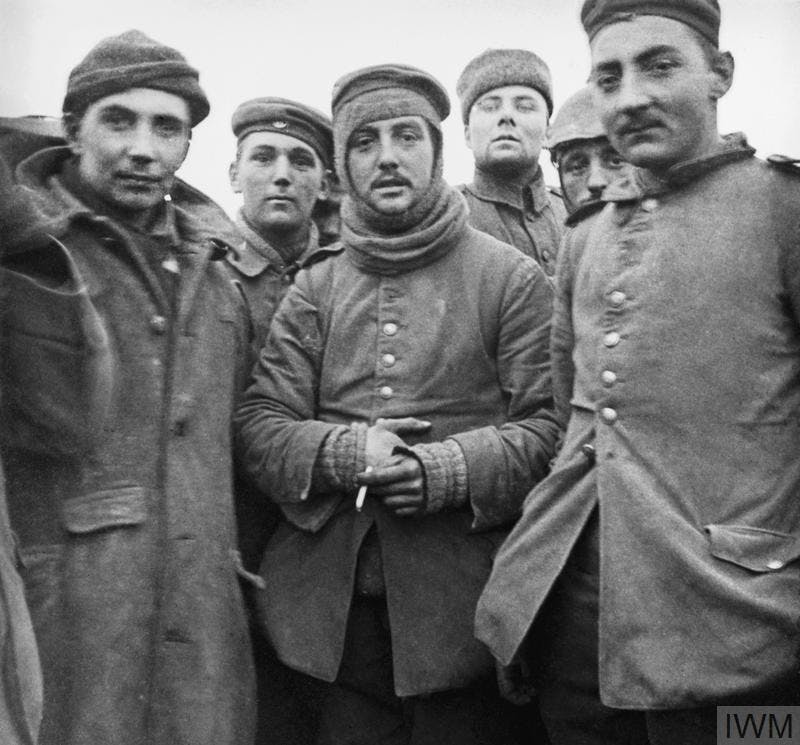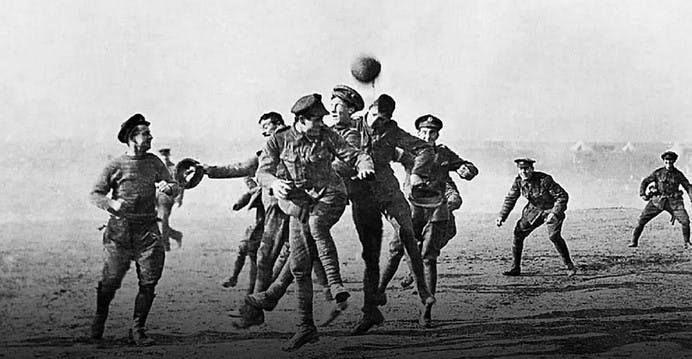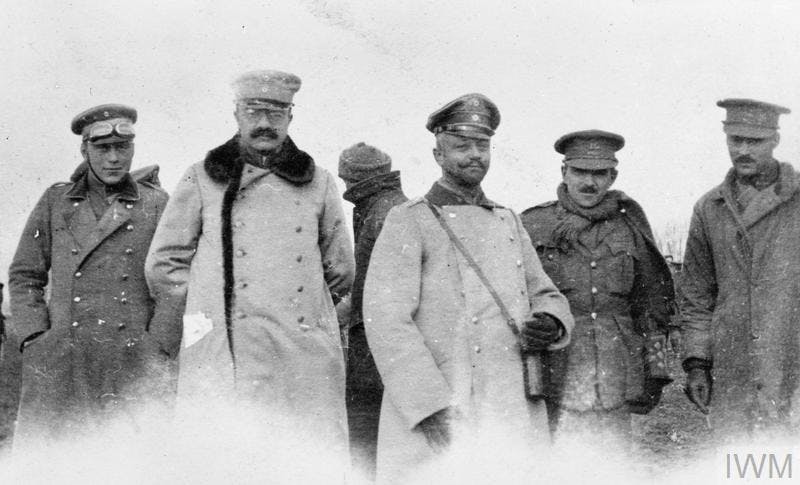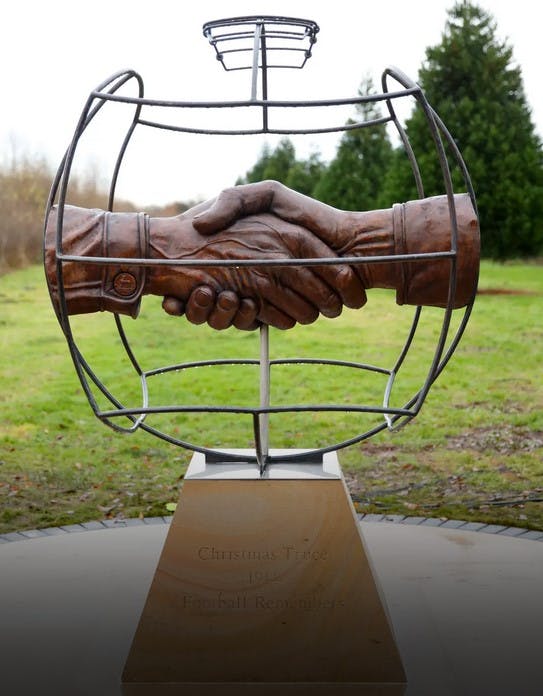One Silent Night When Sworn Enemies Set War Aside
Caroling Carries Across Blood-Soaked Battlefields
Christmas Eve 1914 descended towards midnight under bone-chilling skies over Belgium’s deadlocked Western Front. For British machine gunner Bruce Bairnsfather hunkering in muddy trenches with the Royal Warwickshires, thoughts drifted homeward across the growling guns. Rather than family comforts, his dreary shelters three feet deep offered only ceaseless combat’s signature harvest – sleeplessness, hunger, infection, dismemberment, madness – with each day narrowly dodging death’s next careless swing.
Yet suddenly tender strains of “Stille Nacht” floated through the darkness from German lines mere hundreds of yards away. Then the British picked up the cues, voices rising together with “Silent Night’s” familiar English refrains. Just months ago most believed the war would end by Christmas, Bairnsfather mused. Could carols finally herald truce from this horrific entanglement? Incredibly before dawn, a bizarre armistice unfurled as if heaven-sent to hell.

Troops Gingerly Venture Forth On Christmas Morn
When opposing trenches both fell silent, the British grew suspicious. Then, accented English shouts rang out: “Come over here!” Sergeant Stanley Holmes bravely answered: “You come halfway, we come halfway.” Thus did the inconceivable occur in ultimate No Man’s land: sworn killing machines strolling out, unarmed, to make nice.
“Eventually a German said, ‘Tomorrow you no shoot, we no shoot,'” British rifleman J. Reading later penned home. “They were Saxons and one fellow talked English!” gasped amazed infantryman Archibald Stanley. “Cor blimey mate…I was in a London hotel when the war broke out!”. It turned out peaceful gestures needn’t trump bitter hatreds or strict orders against fraternity. Contingents along the front observed impromptu goodwill and rest while remaining units gladly carried on hostilities.
Yet where generosity emerged that christmas, shared humanity enticed men to suspend their commissioned savagery without an official truce. “You couldn’t have got such a quiet sector,” marvelled Sergeant George Beckwith. “It was just like a moonlit night at home, with a bit of snow on the ground.” Such fleeting tranquility, however relative, surely proved a welcomed reprieve.

Foes Bury Dead, Swap Treats, And Sport Across Divide
In the barbed wasteland between French and German trenches, incredulous Lieutenant Kurt Zehmisch described British Tommies hoisting a soccer ball aloft in the crisp afternoon. Impromptu goals took shape, ushering in raucous match between recent bombardment targets. To civilian outsiders it appeared a cordial game with lives at stake after ceasefire’s end. Yet to frozen conscripts trudging the same few scarred yards and witnessing horrific mortality for interminable months, surely any playful sleeves felt divine.
Less vigorous interludes reigned across many miles that landmark holiday as enemies gathered to perform grim rites or simple communion. “What do you know, the Jerries are out on top; they’re walking about, they’re dishing out drinks and cigarettes!” whooped, overjoyed British cavalrymen George Jameson and Philip Ridley, proudly sporting German caps and canteens upon return to camp. Others joined solemn processions with candles or lantern light flickering in the profound darkness. Fading notes of “Stille Nacht” echoed again as former killers together gently lowered the frozen dead into Belgium’s ever-welcoming earth.
Some recounted years after families struggling for closure finally learned fates of husbands, fathers, sons expired anonymously on battlefields suddenly bridged by compassion. “You know, we couldn’t have gone on in the First Battle of Ypres because you had so many reserves in your woods,” London fusilier Henry Williamson informed a German officer, mutually affirming the survivors’ burdens. Where truce emerged, ravenous fighters who hadn’t properly slept or eaten in weeks found sustaining crumbs of mutual respect.

(British troops from the Northumberland Hussars, 7th Division, Bridoux-Rouge Banc Sector).
© Harold Robson/IWM (Q 50721)
High Command Orders End To “Deplorable” Peace
Yet romance fades quicker than despair for those tasked with managing violence. Once discovered by the high brass, fury rained down by telephone and telegraph. “Get back in your trenches every man!” echoed outraged voices of generals safe behind Belgian lines. Bewildered Tommies shaking Saxons’ hands one minute were threatened as deserters the next.
“Course that started the war again. Ooh we were cursing them to hell, cursing the generals and that,” fumed lance corporal George Ashurst at orders to fire upon their peacemaking comrades of hours before. However dynamically compassion seized the lower ranks that remarkable Yuletide, top brass proved unwilling to entertain potential cracks in martial order. By necessity soldiers are trained as ruthlessly obedient actors, not autonomous souls.
So this brief nourishing glow between men born innocents but transformed into enemies flickered out under stern repression. No further Christmas Truces would grace the Western Front’s remainder as the upper echelon clamped down. Yet wheregunners mowed lines and sowed screams anew, tender sprigs of reconciliation took lasting root in some hearts.

The Remarkable Truce Becomes Legend Over Decades
High command resolved to contain further unofficial outbreaks of fellowship along the front. Still, news of peculiar 1914 holiday meetings gradually reached public circles. Soldiers’ letters revealing soccer kickabouts and joint burials between trenches were published openly by January 1915 without apparent repercussions. By war’s end the Truce became artistic inspiration across literature and music expressing deeply held yearning for unity.
Though impossible to verify precise scale, the Great War’s fleeting peace at least briefly converted stretches totaling many miles into temporary demilitarized zones. Estimates claim over 100,000 among millions of embattled troops participated in various displays of what unveiled as underlying brotherhood between Europeans slaughtering each other by the tens of thousands.
Far from hiding this profoundly inspiring event, the Truce earned global renown. Paintings, sculptures, advertisements, television and Hollywood films ensued over the century. In 2014 the English and German soccer teams movingly competed in friendly match during a memorial centenary gathering. And England’s National Memorial Arboretum features the prominent “Football Remembers” sculpture commemorating impromptu kickabouts in No Man’s Land that Christmas.
Enduring Takeaways From An Unimaginable Stunning Event
Looking back across the unfathomable man-made calamity unfolding daily along shell-blasted Belgium plains, the suddenly suspended carnage of Christmas 1914 almost strains credulity. Yet theImpromptu goodwill exchanges and cessations undeniably occurred without formal decree. No less astounding, the original belligerent inspiration was merely hearing songs of the Savior’s purported “peace on earth towards men of good will” arising from enemies’ frigid outposts.
What profound truths lie cradled in this war story for the ages? Men young and worldly, patriotic and dutiful, faced the same holiday tugs of compassion towards fellows suffering senselessly as themselves. We can glean from numerous accounts that only ignorance bred through distances physical and cultural perhaps enabled propaganda convincing millionsto crave killing one another. And we can conclude from brigadier blowback that even intensely bonded killing comrades threaten rigid tribal hierarchy.
But more universally, the improbable Christmas Truce speaks to transcendent human yearnings for tranquility and belonging beyond caste, customs, banners, geopolitics. Its legend survived and inspired because, for a fleeting thin slice of eternity, simple soldier empathy plainly revealed war’s great lie: concocted enmity to leverage human sacrifice on vast scale indeed demands consistent emotional suppression.
What “treasonous” truce occurred was not an organized rebellion but organic surging of spirit no disciplinary threat could forever quell. Its persistence in legend reminds us that, however obscured behind draped flags and horns, the deepest human essence seeks connection and community with all. And if we LET true good will take flesh, exceptional miracles like a soccer ball briefly replacing bullets might surprise us all one silent night.



